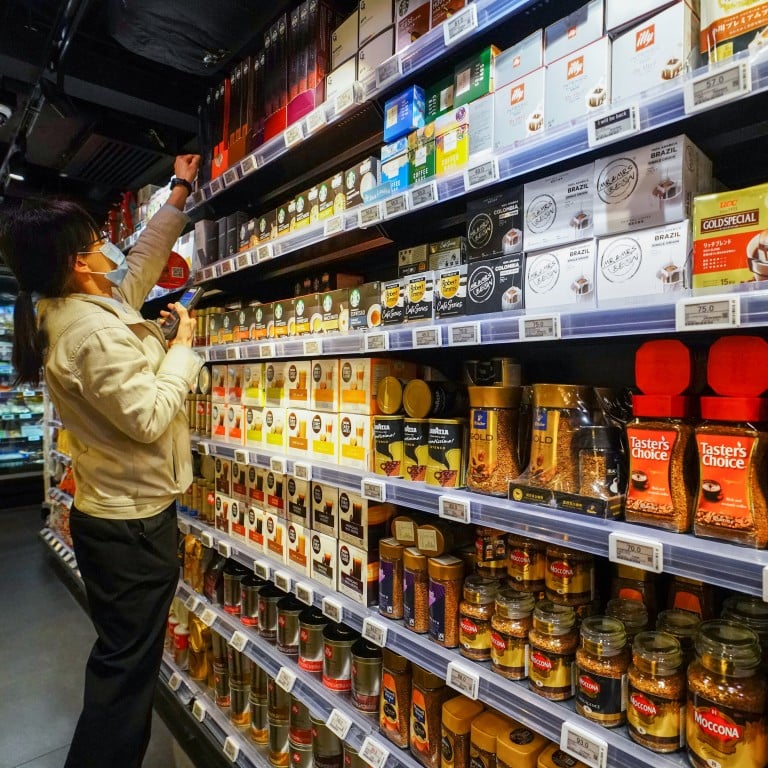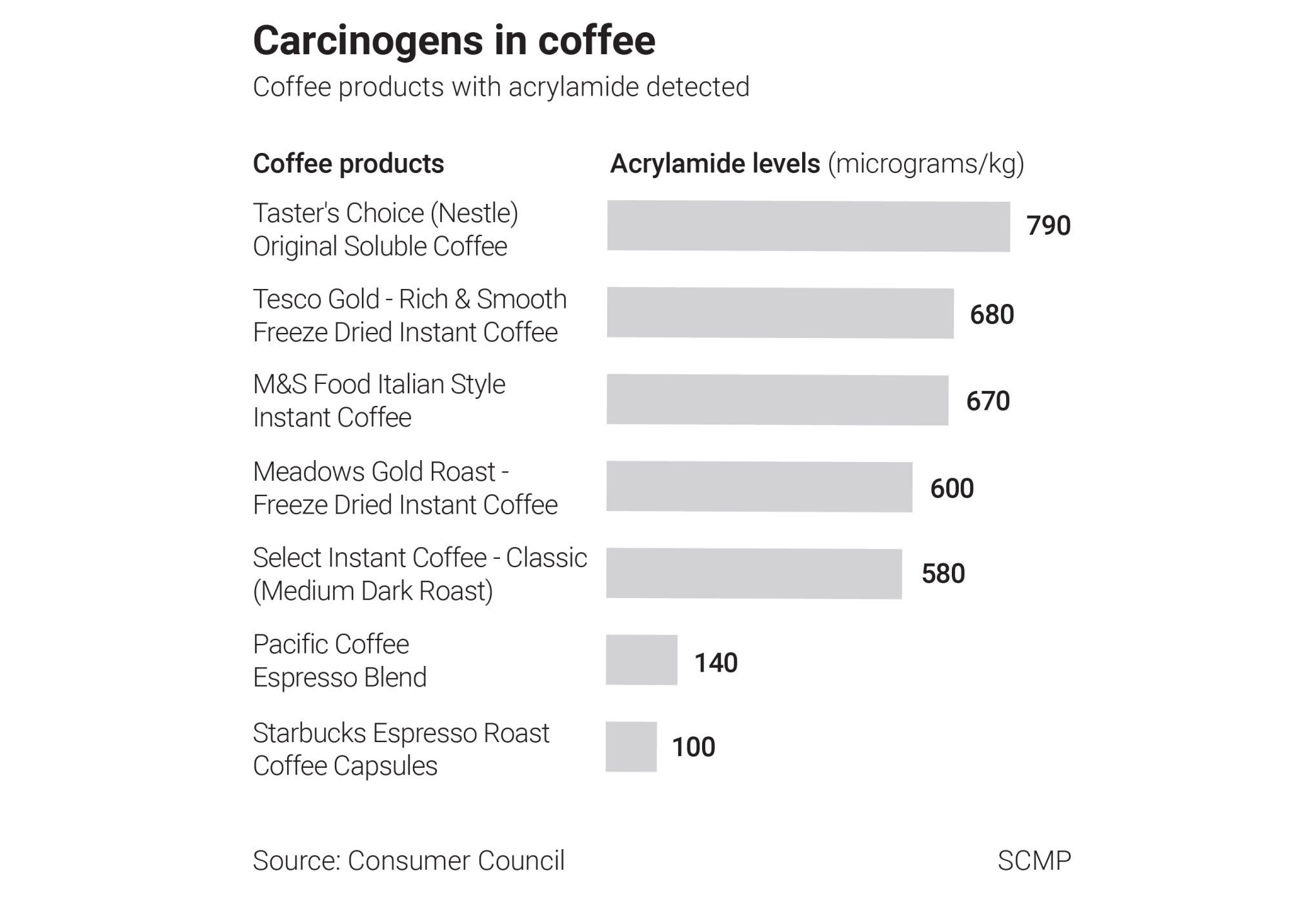
Hong Kong Consumer Council finds cancer-causing substance in 95 per cent of coffee samples
- Consumer Council found genotoxic carcinogenic acrylamide in 47 of 49 coffee samples, with those of instant coffee containing a higher level of the substance
- Instant coffee brand with the highest amount of acrylamide detected was Taster’s Choice (Nestle) Original Soluble Coffee, at 790 micrograms per kilogram
A cancer-causing substance was detected in more than 95 per cent of coffee samples tested by Hong Kong’s consumer watchdog.
The Consumer Council revealed on Monday it had tested 49 different types of coffee products on the market and found genotoxic carcinogenic acrylamide in 47 samples, with those of instant coffee containing a higher level of the substance.
The samples tested included instant coffee, coffee beans, capsules and powder.
Hongkongers warned of health risks posed by high-salt cold cut meats
Acrylamide, a genotoxic carcinogen and neurotoxic substance, is a pollutant produced from free amino acids and by reducing sugars in food at high temperatures. Prolonged exposure to high doses of acrylamide can increase the risk of cancer.
“Although the acrylamide content in coffee is relatively lower than fried foods, such as potato chips and French fries, consumers should pay attention to the amount and frequency of consumption when drinking coffee to reduce the intake of acrylamide,” said Nora Tam Fung-yee, chairwoman of the council’s research and testing committee.
The checks showed that instant coffee had the highest acrylamide content per kilogram, ranging from 160 to 790 micrograms, while other types of coffee contained between 53 and 240 micrograms of the substance.
The instant coffee brand with the highest amount of acrylamide detected was Taster’s Choice (Nestle) Original Soluble Coffee, at 790 micrograms per kilogram.
Other brands with relatively high levels of acrylamide ranging from 580 to 680 micrograms include Tesco Gold - Rich & Smooth Freeze Dried Instant Coffee, M&S Food Italian Style Instant Coffee, Meadows Gold Roast - Freeze Dried Instant Coffee and Select Instant Coffee - Classic.
Meadows said its products complied with the current Hong Kong laws and requirements.
The Post has reached out to the other companies for comment.

Agents from Nestle responded that their products were compliant with current Hong Kong and international regulations, while also in line with the company’s strict safety and quality standards.
The company said the acrylamide content detected in its products in this study was lower than established European benchmark safety levels, which set a maximum of 400 micrograms per kilogram for roasted coffee and 850 micrograms for instant coffee.
Popular products from household brands such as Pacific Coffee Espresso Blend and Starbucks Espresso Roast Coffee Capsules contained 140 and 100 micrograms, respectively.
Only two products, OPAL Coffee’s Toraja Drip Coffee and The Coffee Academics’ TCA House Blend Specialty Coffee Capsules, did not contain any traces of the chemical.
“[The two products reflected] that it is feasible for manufacturers to reduce the possible formation of acrylamide during the various production stages of coffee products, from raw ingredient selection to roasting and processing,” Tam said, adding there were currently no regulations for acrylamide levels in food in Hong Kong.

Tam also urged coffee manufacturers to review their raw ingredients and production process to minimise the formation of acrylamide during the roasting process to enhance food safety, while consumers were encouraged to read product descriptions on coffee packaging carefully.
A previous citywide total diet study conducted by the Centre for Food Safety showed that the health risk for adults exposed to acrylamide from coffee intake was small, the council added.
But Gilly Wong Fung-han, the council’s chief executive, said people who continued to drink coffee excessively could still encounter health problems in the long run.
“From our perspective, we have to present as much information as possible to consumers for them to make choices, even though those products [may appear] to follow regulations,” she added.

